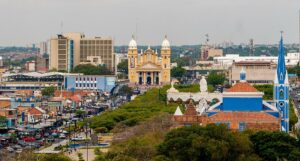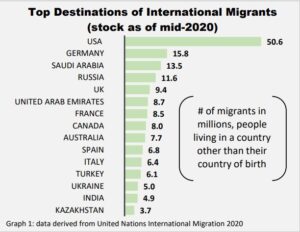Usually, most people leave their native country for better opportunities. Some migrants leave for work, for study, or to join family. In fact, several factors may determine population movements which include poverty, political unrest, violence, natural disasters or conflict. According to the United Nation’s latest estimates on international migration (mid-2020), nearly 281 million (M) migrants live outside the country of their birth.

The Prime Minister of Canada, Justin Trudeau, and the President of Spain, Pedro Sánchez (in the pic from the NATO website, with secretary general Jens Stoltenberg), met in the NATO Summit this Monday, June 14. They discussed the economic and social relations between the two nations, as well as forced migration and the importance of an international policy for the distribution of vaccines for the less favored countries. →
The trip to Canada of the Monarch butterfly (Danaus plexippus) begins this week, but with a reduction of 26 percent due to the change in land use, the reduction of milkweed in their breeding places in the United States and Canada, illegal logging in Mexico and climate change. →
 More than five million Venezuelans have left their country in recent years, and despite the fact that Canada heads the Lima Group that recognizes the Venezuelan problems and promotes reception and support for Venezuelans, it has not opened reunification or refugee programs for the displaced. →
More than five million Venezuelans have left their country in recent years, and despite the fact that Canada heads the Lima Group that recognizes the Venezuelan problems and promotes reception and support for Venezuelans, it has not opened reunification or refugee programs for the displaced. →



